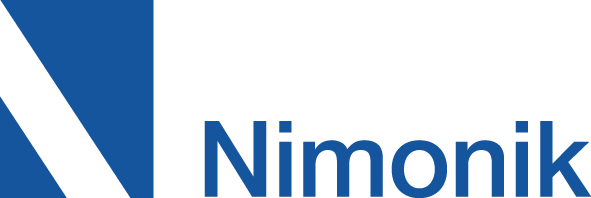
Having a compliance management partner allows you as a company to be ahead and know all the regulations and compliances your company needs to meet. ENHESA competitors offer similar services, but each alternative has its advantages and disadvantages. A robust compliance partner helps prepare your company for future and foreseeable compliance and regulation changes. The obligations and requirements for your organization are constantly changing, it is therefore critical to put in place a regulatory monitoring system.
ENHESA is a partner to many multinational companies and corporations and focuses on serving the world’s largest organizations that have tens of thousands of employees around the world. ENHESA equips them with the necessary know-how of emerging regulatory trends and knowledge and empowers corporations with the relevant environment, health, and safety information for national and some local jurisdictions.
Exploring ENHESA Key Features
ENHESA key features that make it a popular choice among regulatory compliance and EHS professionals:
- Regulatory Compliance Database: ENHESA maintains an extensive database of global regulations, enabling users to access up-to-date compliance information easily.
- Monitoring and Reporting Capabilities: ENHESA provides tools for tracking regulatory changes and generating reports to ensure compliance with various standards and requirements.
- Risk Assessment and Management: ENHESA offers risk assessment and management functionalities to help organizations identify and mitigate potential compliance risks.
- Customization and Integration Options: ENHESA allows users to customize the platform according to their specific needs and integrate it with existing systems for seamless data exchange.
- Support and Training: ENHESA provides support and training resources to ensure users can make the most of the platform and stay updated with regulatory changes.
Understanding the Need for ENHESA Alternatives
Many regulatory compliance and EHS professionals have questions about ENHESA alternatives for regulatory monitoring and insights due to its high price. For instance, a basic regulatory update service and newsletter for EHS issues can cost upwards of $5,000 per year per jurisdiction. A more comprehensive list of regulatory requirements, broken down into an audit protocol, can cost upwards of $10,000 per jurisdiction per year. ENHESA is the most costly option on the market. In addition, most consumers of ENHESA data purchase supporting software, which can cost in the tens of thousands of dollars per year. Competitors such as Nimonik offer much more cost-competitive options to ENHESA.
A Viable Alternative: Regulatory Compliance Software

An alternative to ENHESA is the use of regulatory compliance software. This software is designed to streamline the process of monitoring and managing regulatory requirements. It offers a range of features and functionalities that assist organizations in achieving and maintaining compliance.
Comprehensive Database and Real-time Updates
Regulatory compliance software typically includes a comprehensive database of regulations and standards, similar to ENHESA. This database is regularly updated to ensure that users have access to the latest compliance information. By staying up to date with regulatory changes, organizations can proactively adjust their compliance strategies and avoid potential penalties or fines.
Monitoring Capabilities and Alert System
The software provides monitoring capabilities, allowing organizations to track regulatory changes and receive timely alerts when updates occur. This feature enables proactive compliance management, ensuring that organizations are aware of new requirements or modifications to existing regulations. By receiving alerts, organizations can promptly assess the impact of regulatory changes on their operations and take necessary actions to maintain compliance.
Flexibility and Scalability
Another advantage of regulatory compliance software is its flexibility and scalability. Organizations can choose a software solution that aligns with their specific industry and regulatory requirements. The software can be customized to accommodate the organization’s unique compliance processes and workflows, like training auditors. This flexibility allows organizations to tailor the software to their specific needs and ensures a seamless integration into their existing compliance management systems.
FAQs about Enhesa alternatives
1. Who are the main competitors of ENHESA in the market?
The main competitors of ENHESA in the market are STP, Red-on-Line, Dakota software, or Nimonik. For organizations that are looking for a turn-key solution that offers both the regulatory data, insights, but also offers compliance software – the main competitor to ENHESA is Nimonik.
2. What are the ENHESA key features that differentiate ENHESA from its competitors?
Key features that differentiate ENHESA from its competitors include:
- Established in 1989, the company has integrated chemical data companies and product compliance solutions.
- ENHESA has a global reach with numerous locations and a strong footprint in the Fortune 500.
- Integration into EHS Management software.
3. How does the pricing of ENHESA compare with its competitors?
ENHESA is the most costly option on the market due to its reliance on regulatory analysts and its focus on large enterprise contracts. Competitors offer much more cost effective options that can be twice as less compared to ENHESA. Many competitors like Nimonik include the supporting software, reducing the costs of regulatory compliance management.
4. What is the market share of ENHESA compared to its competitors?
If you look at the broader offerings for regulatory compliance such as Nimonik,
ENHESA has a small market share outside of EHS regulatory data. It focuses entirely on EHS compliance and does not offer regulatory coverage for other regulatory issues such as CyberSecurity, Privacy, HR, Transport.
5. How does ENHESA’s customer support compare to its competitors?
ENHESA has average customer support, as seen by their online reviews on various platforms. ENHESA is focused on serving the corporate head office, and EHS professionals at the facility level often find ENHESA to be a poor fit. Many local providers such as Notisum, Echoline or Nimonik offer much more robust customer support.
6. What is the growth rate of ENHESA’s competitors compared to ENHESA?
According to Verdanix research, the environmental, health, and safety industry is growing at about 13.8% year over year and should grow to 1.46 billion in 2028. While ENHESA, STP, Regscan, and Nimonik do not publicly disclose their growth rates, it should be assumed that most of these organizations are growing at a rate near to 13% per year.
7. What is the level of customer satisfaction with ENHESA?
ENHESA customer satisfaction is reasonable and can be viewed on a variety of platforms such as Google. Any enterprise solution has varying levels of customer satisfaction, it is recommended that any potential buyer asks for references and validates that customers of ENHESA are satisfied.
8. What are the most common complaints about ENHESA?
The most common complaints about ENHESA are its cost and its lack of detailed regulatory coverage. Many organizations that purchase ENHESA at the corporate level will find that their local facilities are not satisfied with the solution. ENHESA often has limited coverage of state, provincial, municipal or regional regulations.
9. How does the market share of ENHESA vary by region?
ENHESA has strong market share across the Fortune 500, with a focus on European companies and US companies. Because ENHESA is headquartered in Belgium, their focus has historically been companies in the European Union. With the acquisition of Regscan, ENHESA became the main provider of regulatory data to the largest companies in the United States.
10. How do ENHESA’s competitors help organizations manage regulatory compliance issues?
The most direct ENHESA’s competitor, STP, offers limited software and relies on its customers to have purchased EHS management software to handle the regulatory data. In contrast, Nimonik offers both the regulatory data and the software to help implement a robust compliance program.
11. How does ENHESA’s competitors’ user interface and experience compare to ENHESA?
ENHESA’s user interface is known for its simplicity and ease of use. However, when comparing it to competitors that offer both broad regulatory data and compliance management software, such as Nimonik and Dakota, there are notable differences in terms of user interface and experience.
12. What is the level of security and data privacy offered by ENHESA’s competitors?
Most of the regulatory data providers have modern information management systems and cybersecurity systems in place. ENHESA and its competitors such as Nimonik offer similar levels of security, usually based on industry standards such as ISO 27001 and SOC 2.







